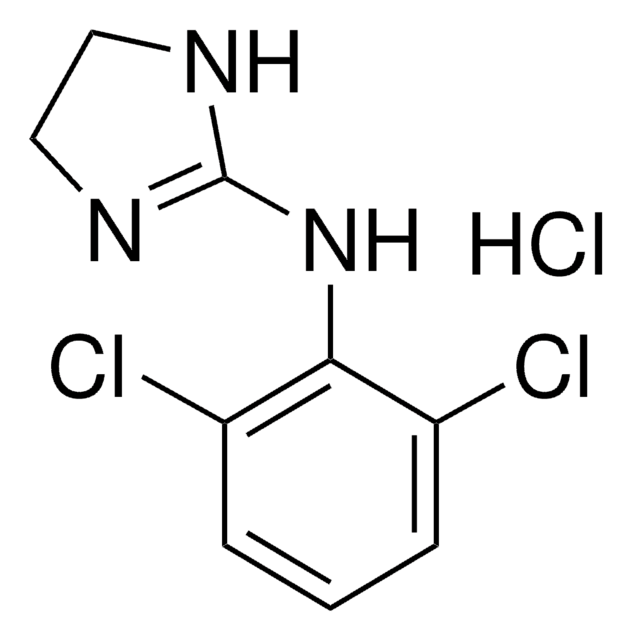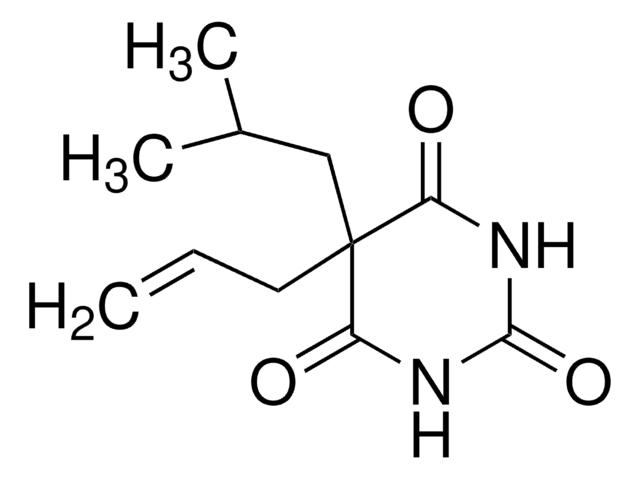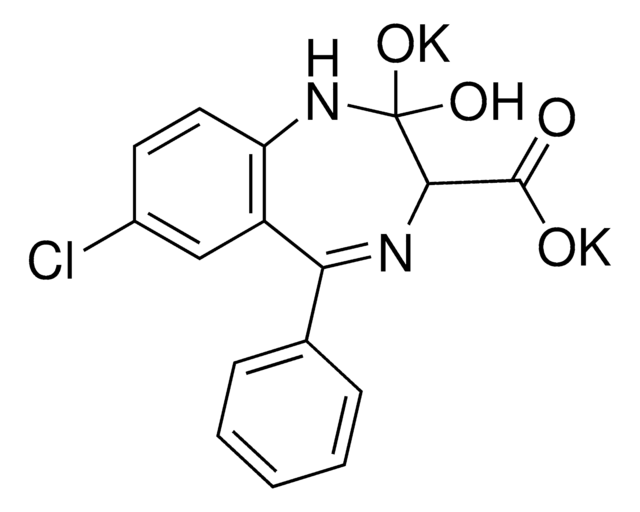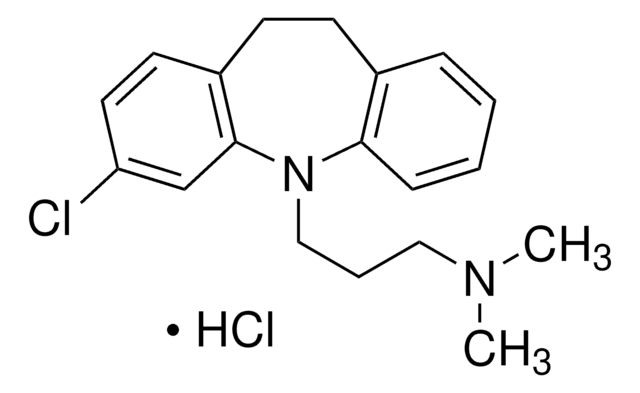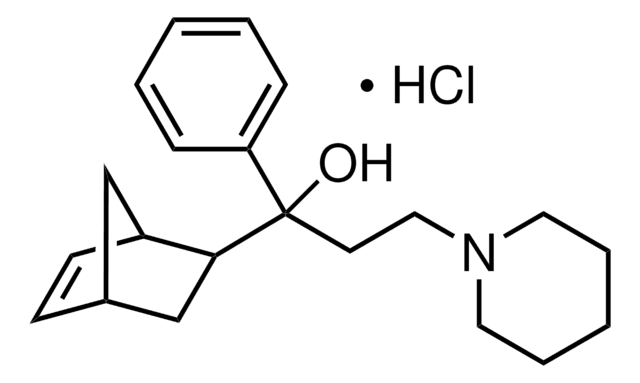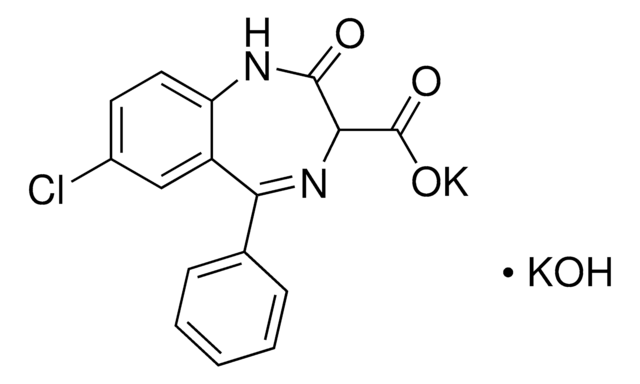1140393
USP
Clonidine
United States Pharmacopeia (USP) Reference Standard
Synonym(s):
2-(2,6-Dichloroanilino)-2-imidazoline
About This Item
Recommended Products
grade
pharmaceutical primary standard
API family
clonidine
manufacturer/tradename
USP
application(s)
pharmaceutical (small molecule)
format
neat
InChI
1S/C9H9Cl2N3/c10-6-2-1-3-7(11)8(6)14-9-12-4-5-13-9/h1-3H,4-5H2,(H2,12,13,14)
InChI key
GJSURZIOUXUGAL-UHFFFAOYSA-N
General description
For further information and support please go to the website of the issuing Pharmacopoeia.
Application
- Pharmacological research in hypertension: Clonidine, as an alpha-2 adrenergic agonist, is widely researched for its efficacy in controlling high blood pressure, highlighting its role in cardiovascular studies and its impact on hypertension management (Luo et al., 2023).
- Neuroscience studies on ADHD: Studies utilizing clonidine in the treatment of Attention Deficit Hyperactivity Disorder (ADHD) emphasize its effectiveness as a non-stimulant option, contributing to neuroscience research by exploring its neuromodulatory effects (Goodwin et al., 2023).
- Opioid withdrawal management: Clonidine′s application in mitigating opioid withdrawal symptoms underlines its critical role in addiction medicine, providing a pharmacological approach to support recovery processes (Riccardi et al., 2023).
- Preclinical cardiovascular research: The utilization of clonidine in preclinical studies involves detailed cardiovascular assessments, helping to elucidate the drug′s mechanism in blood pressure regulation and heart rate control, crucial for developing targeted therapies (Salim et al., 2022).
- In vitro pharmacological profiling: Clonidine is extensively used in in vitro studies for pharmacological profiling, helping to determine its interaction with various neurotransmitter systems and its pharmacodynamics (Flinspach et al., 2022).
Analysis Note
Other Notes
related product
Signal Word
Danger
Hazard Statements
Precautionary Statements
Hazard Classifications
Acute Tox. 3 Oral
Storage Class Code
6.1C - Combustible acute toxic Cat.3 / toxic compounds or compounds which causing chronic effects
WGK
WGK 3
Flash Point(F)
Not applicable
Flash Point(C)
Not applicable
Certificates of Analysis (COA)
Search for Certificates of Analysis (COA) by entering the products Lot/Batch Number. Lot and Batch Numbers can be found on a product’s label following the words ‘Lot’ or ‘Batch’.
Already Own This Product?
Find documentation for the products that you have recently purchased in the Document Library.
Our team of scientists has experience in all areas of research including Life Science, Material Science, Chemical Synthesis, Chromatography, Analytical and many others.
Contact Technical Service